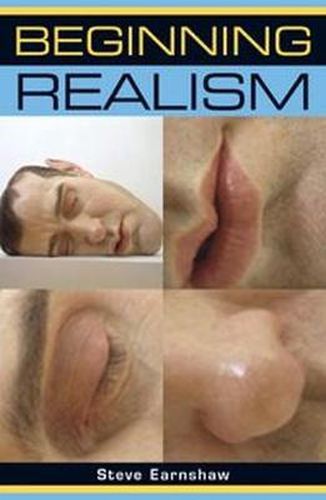Readings Newsletter
Become a Readings Member to make your shopping experience even easier.
Sign in or sign up for free!
You’re not far away from qualifying for FREE standard shipping within Australia
You’ve qualified for FREE standard shipping within Australia
The cart is loading…






‘Realism’ is a term which is key to understanding, amongst other things: the novel genre, Victorian literature, modernism, and postmodernism. It thus provides the conceptual basis for much literary study yet continues to be regarded as too ‘slippery’ to be of use, or can be undervalued as a literary mode, failing to receive the critical attention that more ‘glamorous’ artistic movements have attracted. Beginning Realism addresses that gap and offers an accessible guide for students and scholars to get to grips with this most fundamental of categories. It offers a clear exposition of the importance of realism for literary studies, the different ways in which realism has been understood, and continues to be understood, by authors, critics and readers. This study recognises that realism is every bit as complex as other modes of representation and requires a similar level of critique. Beginning Realism’s initial focus is on the nineteenth-century novel, the period and genre which defined literary realism, using a set number of works from Gaskell, Eliot, Trollope, Dickens, Mrs Oliphant, Thackeray and Zola. Having firmly established what literary realism is, the book then looks at poetry and drama - genres often omitted from other studies of realism- while other chapters fully explore modernism and postmodernism - modes which lean heavily upon an idea of realism for their operations. The book also includes chapters on the theories and theorists of realism (e.g. Watt, Auerbach, Lukacs, and Belsey), as well as a chapter on the language of realism. A separate chapter deals with realism in its philosophical and scientific aspects, and concludes by discussing the current status of realism.
$9.00 standard shipping within Australia
FREE standard shipping within Australia for orders over $100.00
Express & International shipping calculated at checkout
Stock availability can be subject to change without notice. We recommend calling the shop or contacting our online team to check availability of low stock items. Please see our Shopping Online page for more details.
‘Realism’ is a term which is key to understanding, amongst other things: the novel genre, Victorian literature, modernism, and postmodernism. It thus provides the conceptual basis for much literary study yet continues to be regarded as too ‘slippery’ to be of use, or can be undervalued as a literary mode, failing to receive the critical attention that more ‘glamorous’ artistic movements have attracted. Beginning Realism addresses that gap and offers an accessible guide for students and scholars to get to grips with this most fundamental of categories. It offers a clear exposition of the importance of realism for literary studies, the different ways in which realism has been understood, and continues to be understood, by authors, critics and readers. This study recognises that realism is every bit as complex as other modes of representation and requires a similar level of critique. Beginning Realism’s initial focus is on the nineteenth-century novel, the period and genre which defined literary realism, using a set number of works from Gaskell, Eliot, Trollope, Dickens, Mrs Oliphant, Thackeray and Zola. Having firmly established what literary realism is, the book then looks at poetry and drama - genres often omitted from other studies of realism- while other chapters fully explore modernism and postmodernism - modes which lean heavily upon an idea of realism for their operations. The book also includes chapters on the theories and theorists of realism (e.g. Watt, Auerbach, Lukacs, and Belsey), as well as a chapter on the language of realism. A separate chapter deals with realism in its philosophical and scientific aspects, and concludes by discussing the current status of realism.